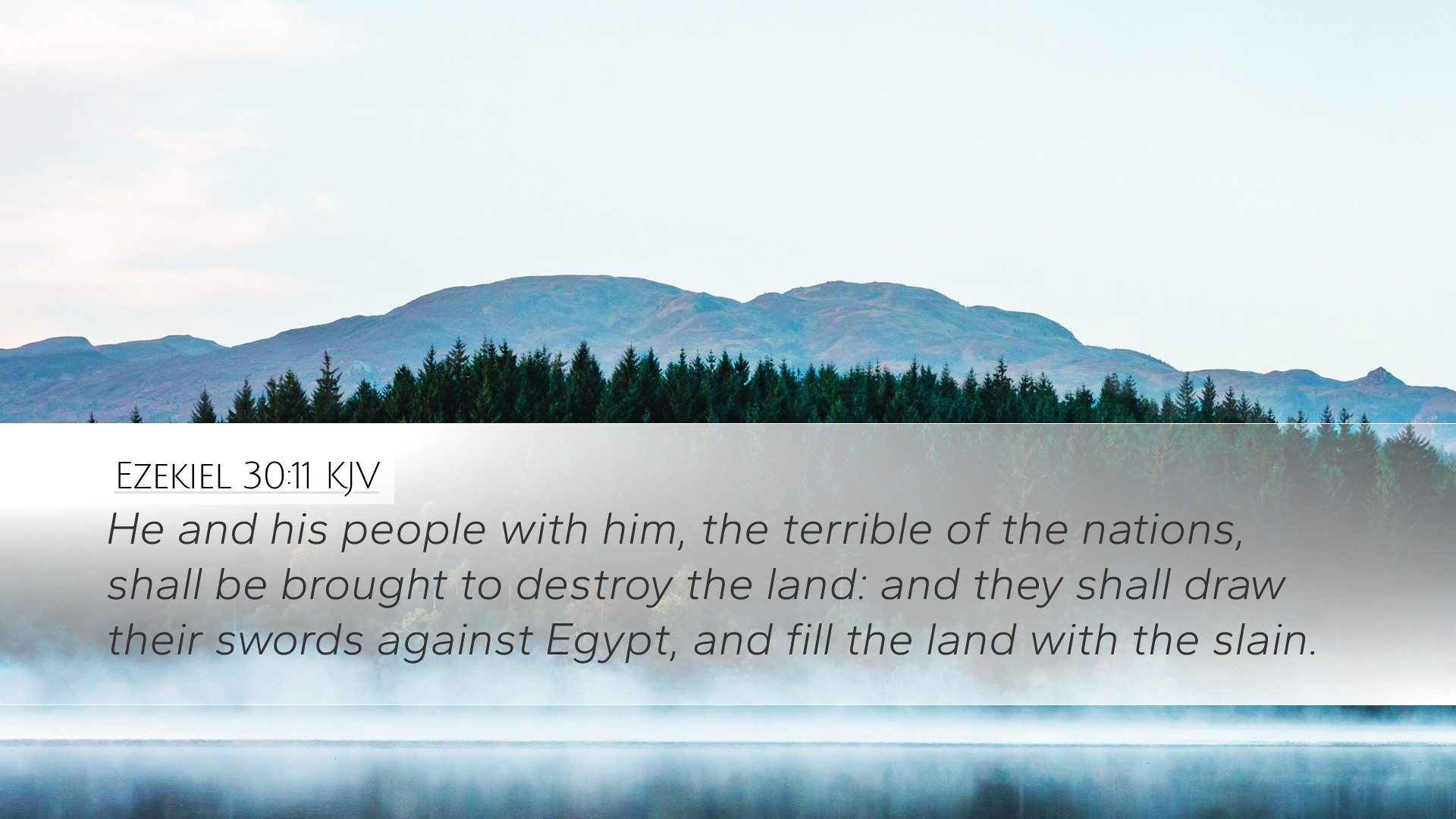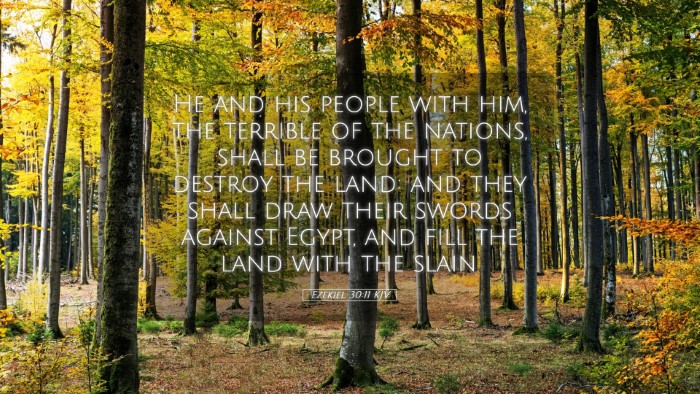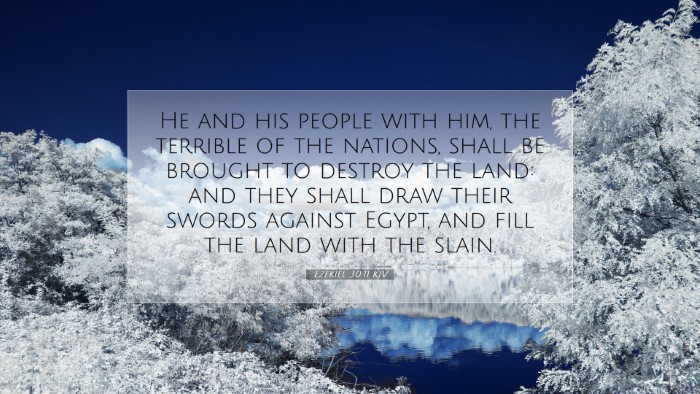Bible Commentary on Ezekiel 30:11
Ezekiel 30:11 states: "He and his people with him, the terrible of the nations, shall be brought to destroy the land; and they shall draw their swords against Egypt, and fill the land with the slain." This verse serves as a significant passage that exemplifies God's judgment against Egypt and reflects the broader themes present in the book of Ezekiel.
Contextual Overview
The prophet Ezekiel delivers messages of doom and judgment primarily focused on the nations surrounding Israel, including Egypt. This passage is crucial in understanding the role of Egypt in the geopolitical landscape of the ancient Near East and highlights the divine orchestration of events leading to its downfall.
Historical Background
Egypt was a powerful nation that often placed its trust in military strength and alliances rather than in God. The context of Ezekiel’s prophecy includes Egypt’s defeat and humiliation following its reliance on its own might instead of recognizing the sovereignty of Yahweh.
Key Themes
- Divine Judgment: The declaration of judgment against Egypt exemplifies how God uses various nations to fulfill His purpose.
- Military Imagery: The reference to "the terrible of the nations" underscores the devastation that God brings upon those who oppose Him.
- Prophetic Fulfillment: This passage offers insights into how prophecies serve as warnings and declarations of God's control over the coarse history.
Commentary Insights
Matthew Henry's Commentary
Matthew Henry emphasizes the scope of God’s sovereignty over the nations, illustrating that the “terrible of the nations” represents those God raises against Egypt to enact His judgments. He notes the implication of destruction not merely on a national level but also on the spiritual state of the people who once placed their confidence in Egyptian power.
Albert Barnes' Commentary
Albert Barnes highlights the phrase "they shall draw their swords against Egypt," suggesting that the devastation to come is not only inevitable but a planned act by God. Barnes stresses how Egypt’s arrogance and idolatry invoke divine displeasure, and as such, God’s warriors are instruments of His wrath. This quote serves as a stark reminder of how nations may come under God's judgment due to their sins.
Adam Clarke's Commentary
Adam Clarke provides a deeper exploration of the symbolism in this verse. He indicates that the "terrible of the nations" can be seen as a representation of God’s instruments in executing His divine will upon those who oppose Him. Clarke discusses the significance of this passage by drawing parallels with historical events, asserting that the prophetic message extends beyond the immediate context to future implications for both Israel and the nations surrounding it. He also contemplates the character of the nations used by God, stressing that their destruction highlights the reality of divine retribution.
Theological Reflections
This passage invites deep theological reflection, particularly concerning the nature of God's justice. The verse encapsulates the concept that divine justice is sometimes executed through foreign nations, serving both as a warning and as a historical reality. For pastors and theologians, this may inspire discussions on the sovereignty of God, the nature of judgment, and the hope for restoration.
Application for the Church
For contemporary application, this scripture poses important questions regarding reliance on worldly powers versus total dependence on God. It challenges the body of Christ to discern where trust is placed—whether in the wisdom of man or in the guidance of the Holy Spirit amidst tumultuous times.
Conclusion
Ezekiel 30:11 offers profound insights not only into God's judgment against Egypt but also into the overall divine narrative. It compels believers to reflect on the sovereignty of God, the call for repentance, and the assurance that God's plans prevail ultimately above the schemes of mankind. As exegesis continues, further exploration into Israel's response to God’s prophecies may yield transformative applications for faith communities today.


